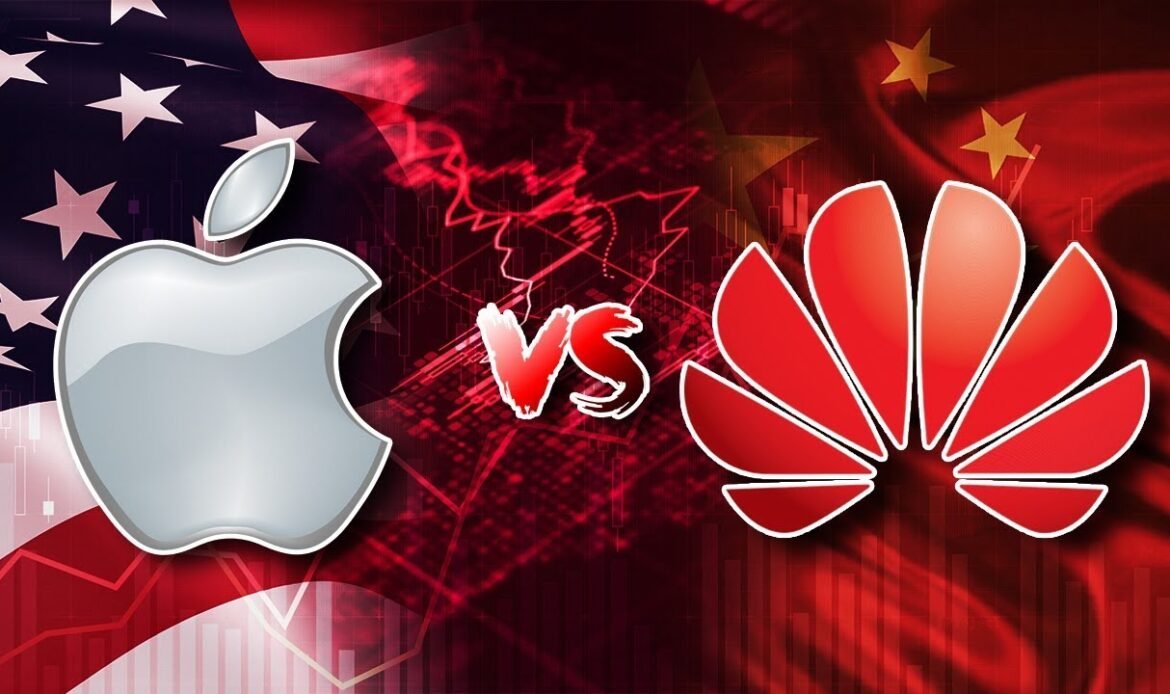By: James. R. Taylor, journalist and economical expert
In the realm of technology, two giants stand at the forefront, battling for dominance in the global market: Huawei and Apple. As the economic war between these industry behemoths unfolds, the stakes are high, and the implications are far-reaching. The clash of these titans not only shapes the future of the smartphone industry but also has profound implications for global trade, technological innovation, and geopolitical power dynamics.
At the heart of this economic war are competing visions of technological leadership and innovation. Huawei, a Chinese multinational technology company, has rapidly ascended to become a leading player in the global smartphone market, leveraging its prowess in telecommunications infrastructure and cutting-edge research and development. Meanwhile, Apple, an American tech giant, has long been synonymous with innovation, design excellence, and a loyal customer base.
The battleground for these two rivals spans continents, encompassing diverse markets and consumer demographics. Both companies have invested heavily in research and development, striving to outpace each other in the race to introduce groundbreaking technologies and features. From 5G connectivity and advanced camera systems to artificial intelligence and augmented reality, Huawei and Apple continuously vie for supremacy in an ever-evolving technological landscape.
However, the economic war between Huawei and Apple transcends mere competition in the marketplace. Geopolitical tensions and trade disputes have significantly shaped the trajectory of this conflict. The U.S. government’s sanctions and restrictions on Huawei, citing national security concerns, have led to a seismic shift in the company’s global operations, particularly its access to crucial technologies and components. These measures have sparked a ripple effect across the global supply chain, impacting not only Huawei but also its partners and suppliers.
Conversely, Apple has faced its own set of challenges, navigating complex trade dynamics and intellectual property disputes in key markets, including China. The interplay of tariffs, trade policies, and intellectual property rights has added a layer of complexity to the economic war, shaping the strategies and decision-making of both companies as they seek to navigate turbulent geopolitical waters.
As the economic war rages on, both Huawei and Apple have adopted multifaceted approaches to secure their competitive positions and navigate the intricate web of economic and geopolitical challenges. Huawei has intensified its focus on bolstering its domestic market presence in China while expanding its footprint in regions where it faces fewer geopolitical headwinds. Additionally, the company has doubled down on diversifying its product portfolio, encompassing not only smartphones but also a wide array of consumer and enterprise technologies.
On the other hand, Apple has continued to leverage its brand strength, ecosystem integration, and investment in services to fortify its global market position. The company’s emphasis on user privacy, ecosystem synergy, and seamless user experience has solidified its standing as a premium brand in the global smartphone landscape, enabling it to weather the storm of geopolitical uncertainties and trade challenges.
Amid this economic war, innovation remains the linchpin of both companies’ strategies. Huawei’s investments in next-generation technologies, including AI and 5G, underscore its commitment to technological leadership, while Apple’s relentless pursuit of design excellence and user-centric innovation continues to drive its product evolution.
As the economic war between Huawei and Apple continues to unfold, the implications for the global economy and technological landscape are profound. The clash of these titans not only shapes the contours of the smartphone industry but also reverberates across the broader tapestry of international trade, innovation, and geopolitical dynamics. The outcomes of this
This article is exclusively for Mideast Discourse



